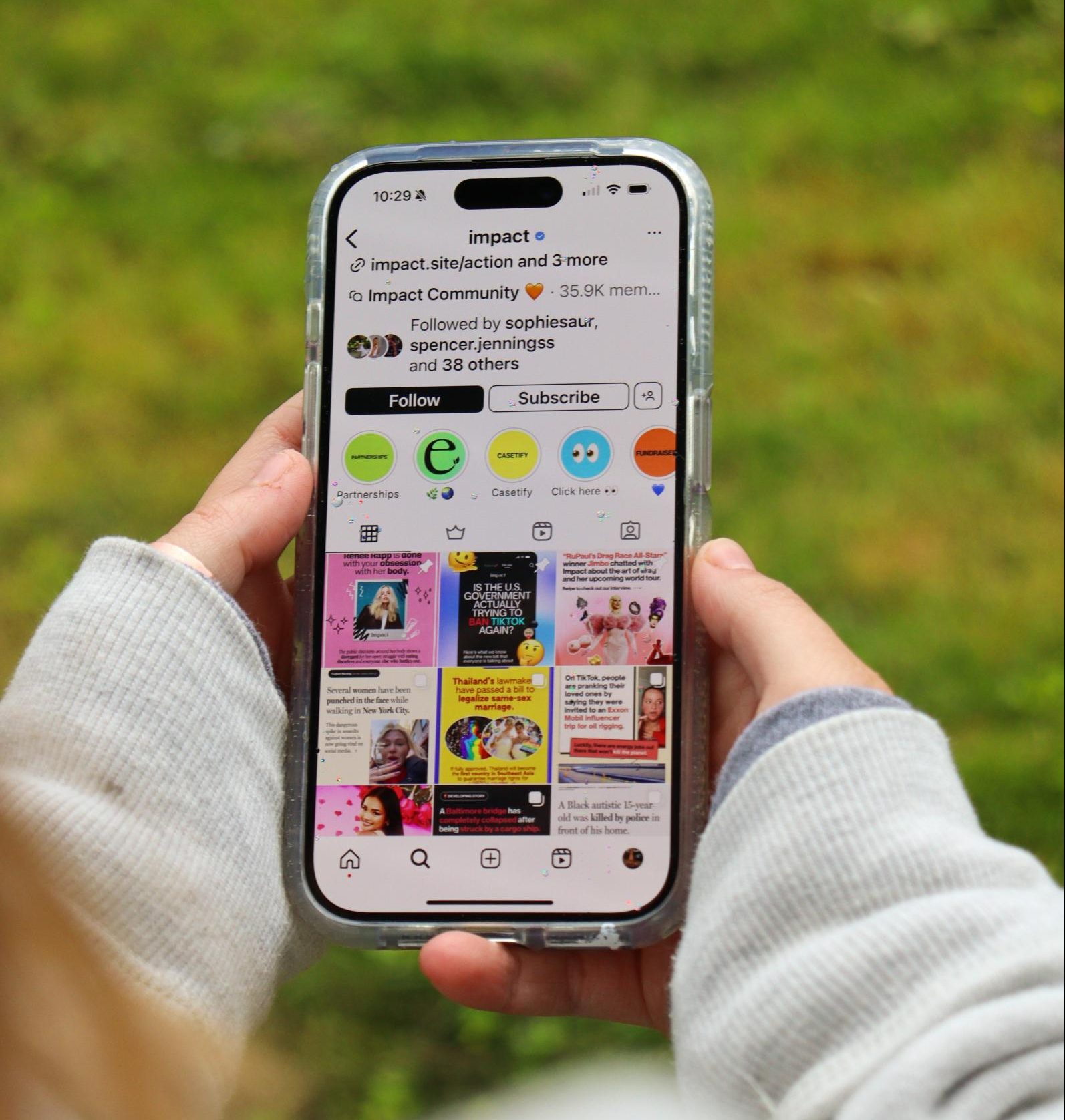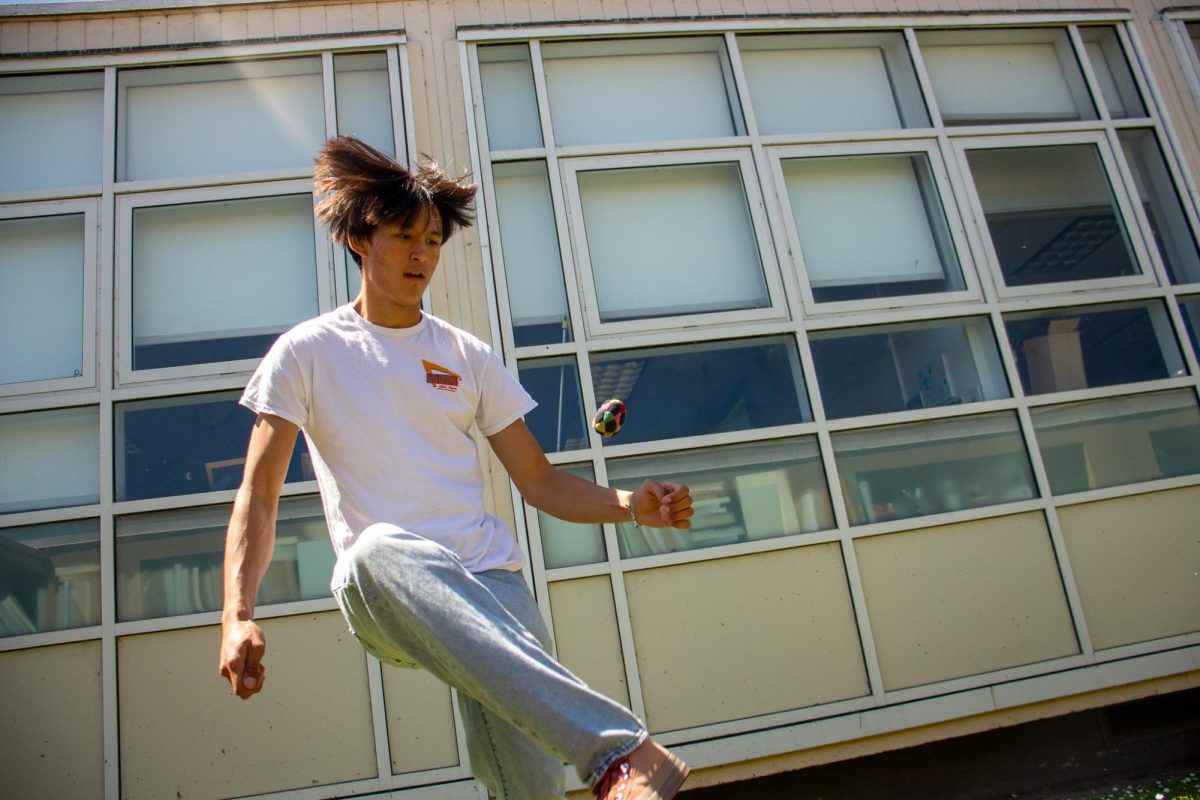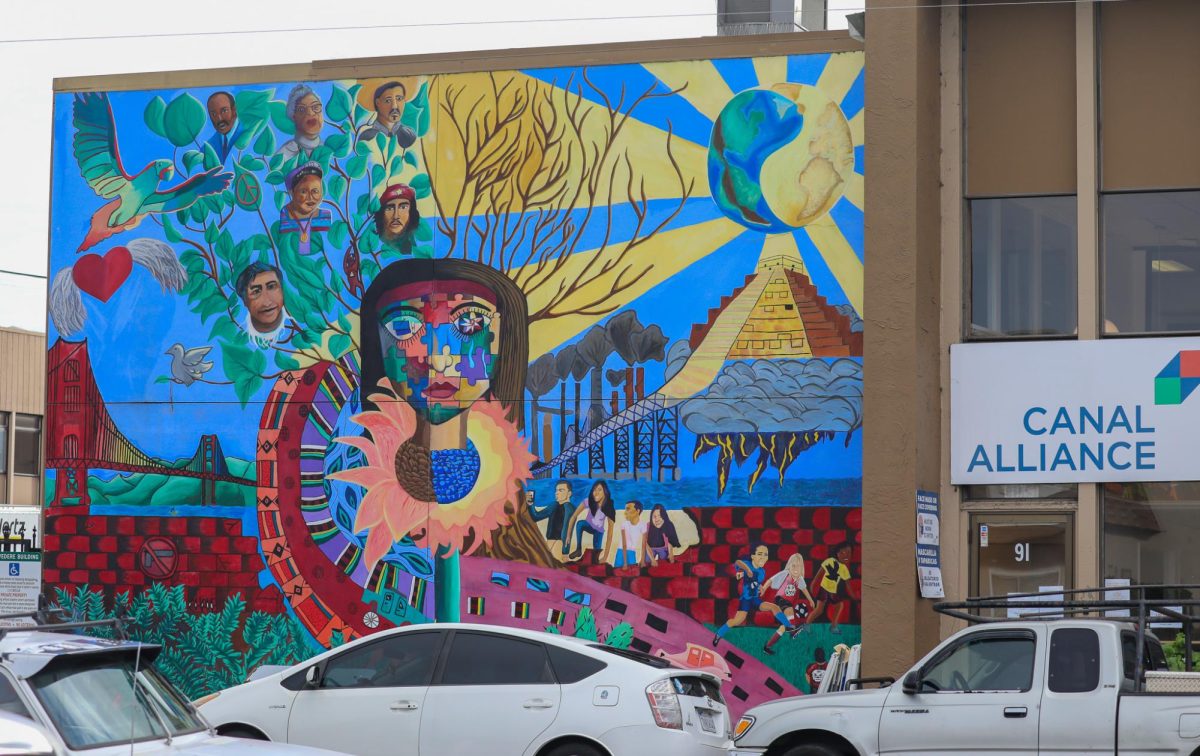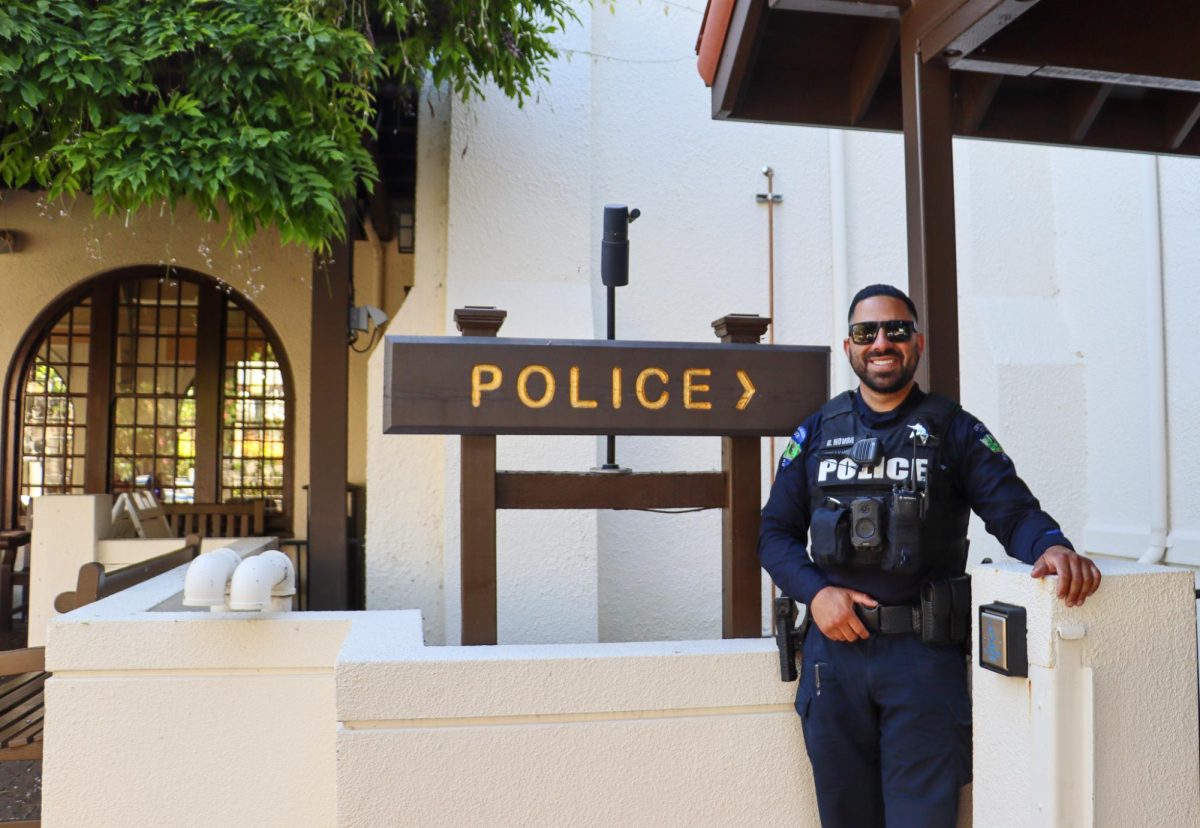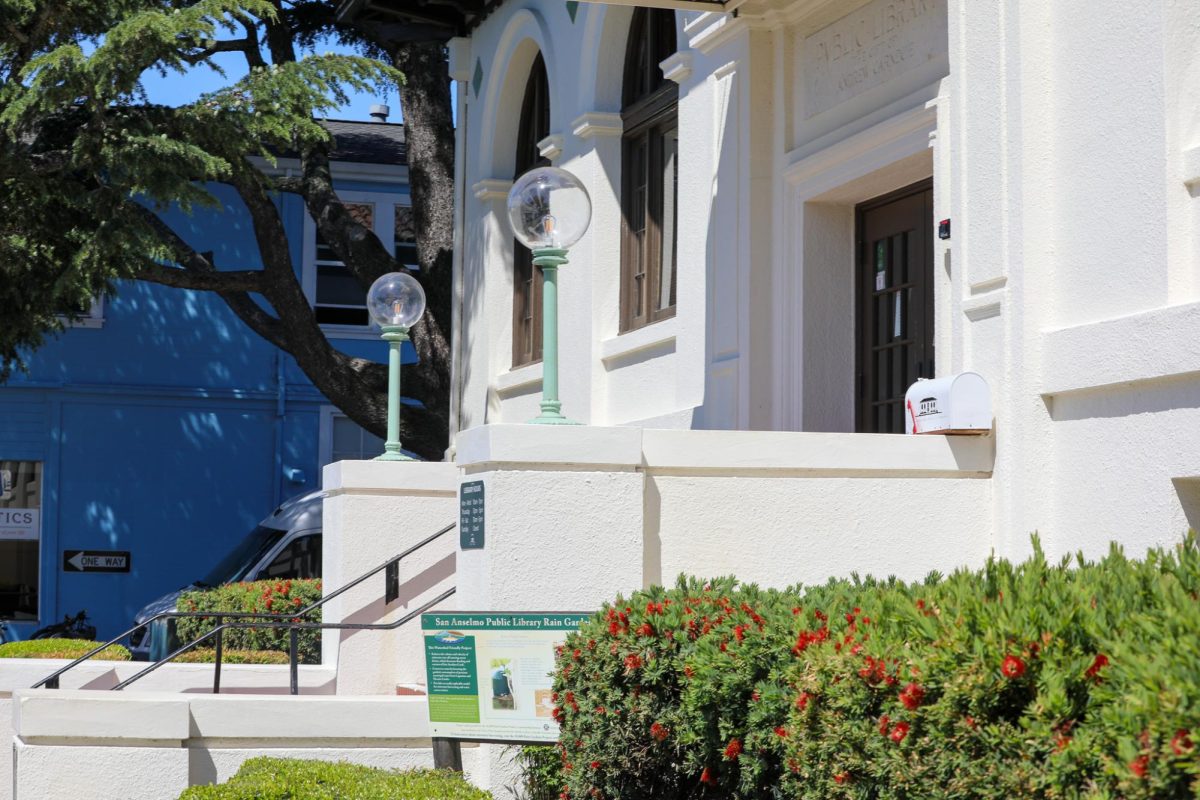With the continued integration of technology into everyday life, social media platforms have become increasingly prevalent in raising awareness about societal issues. According to a 2023 study done by PEW Research Center, 43 percent of social media users were politically active on social media in the past year. Online posts have the potential to become pivotal in shaping social change movements, though the superficiality of some posts begs the question of whether social media activism makes a difference or is merely performative.
Social media activism generally involves sharing posts or reposting content about social issues, often with an aesthetic image or a relevant hashtag. These posts may include quotes, statistics, images, or information relating to a social change movement, and are sometimes perceived as performative. The Boston Medical Center defines performative activism as “activism that is done to increase one’s social capital rather than because of one’s devotion to a cause.”
I think when you’re posting on social media, it reaches a lot of people, and it’s a good way for people to learn about topics, — Alexandra Berry
Archie Williams junior Siena Michelson finds social media activism to be a valuable tool for initiating conversations about important social issues.
“I think it’s one of the beginning steps to raising awareness [around social issues] because everyone’s world is through social media,” Siena said.
Similarly, Archie Williams freshman Alexandra Berry views social media as a way to reach a broad audience.
“I think when you’re posting on social media, it reaches a lot of people, and it’s a good way for people to learn about topics,” Alexandra said.
One current activism movement garnering attention on social media is the Israel-Hamas conflict. The “FreePalestine” hashtag has over 8 million posts on Instagram, as many users have taken to social media to share their views and raise awareness on the issue. Marin Students 4 Palestine, an Instagram-based community organization, is demanding an “immediate and permanent ceasefire in Gaza, an end to all U.S. aid to Israel, and immediate humanitarian aid to Gaza.” The account urges students in Marin to support a ceasefire by posting petitions and information about Students 4 Palestine protests.
Another popular social activism movement is the Black Lives Matter movement, which received an unprecedented surge of support in 2020 following the death of George Floyd. Many users took to social media to share information about protests, petitions, statistics, quotes, and the “black square.” The “Black Lives Matter” hashtag now has over 25 million posts on Instagram.
Despite positive responses to the huge uprisings of social media attention, online activism is not without its critics. Claims that certain users or posts have roots in “slacktivism” are not uncommon. The Cambridge Dictionary defines slacktivism as “activity that uses the internet to support political or social causes in a way that does not need much effort.”
Archie Williams senior and STAAR member Nelly Vallejos has seen many online activism posts that don’t inspire real-world action or effort.
I’d say do what you do online, offline. So talk to people about what you post and about [social] issues. — Siena Michelson
“I mean, Black Lives Matter was one of the main [examples of performative activism] you can see, and also the Israel and Palestine [conflict] was very performative. People [were] starting to post [about the movements]. Now if you talk to them about what’s going on, they probably don’t know what’s being said or what’s happening there,” Nelly said.
The movement has left social media users wondering if activists posting online about social issues are seeking approval from others. The McMaster Undergraduate Journal of Social Psychology asked participants if they thought individuals post about social issues to gain approval from others, and 98 percent replied in the affirmative.
In order for social media posts to go beyond performative, online activism requires translation into real-world action.
“I’d say do what you do online, offline. So talk to people about what you post and about [social] issues. I [organized] a protest at school. I’ve tried to sign petitions, I’ve tried to go to protests. Don’t just keep it online. Do it offline, too. Posting something on your social media that’s credible is great, but it’s not going to do much. It brings awareness, but you need to do more to actually make a change,” Siena said.
According to a 2023 study by the Pew Research Center, social media activism can have a positive impact on organizing social issues movements. 14 percent of social media users have searched for information on rallies or protests in their area.
“Last year I organized a gun violence protest against school shootings [held] at Archie [Williams but] technically not affiliated. From my sharing online for my protest I got 30 people, which felt like a lot,” Siena said.
Although the spread of basic awareness through social media activism is significant, there is also a struggle to have an insightful conversation within a short TikTok video or an Instagram post.
Uncommon Law is an organization that offers legal help, resources, and advocacy for people undergoing California’s parole process. Annie Roge, Uncommon Law’s Development & Communications Director works to craft impactful social media posts.
“I think it’s a constant struggle between wanting to educate people responsibly and in a nuanced way and also needing to craft campaign messaging that cuts through the noise, that will pull people to a point where then you can continue to educate them further,” Roge said.
Whether intentional or not, misinformation can quickly spread, and has complicated the education of the public. A 2018 study by MIT found that users on Twitter are 70 percent more likely to retweet false news than factual information. Sinan Aral, a professor at MIT and co-author of the paper, suggests this is largely due to the novelty factor because false news tends to evoke reactions of surprise and disgust, while true stories provoke emotions like sadness, anticipation, and trust.
“I tried to make sure everything’s fine with credibility, but I’m gonna miss things, and so are other people… You need to know what you’re talking about [to be involved in social media activism],” Siena said.
Social media can help raise awareness and reach a broader audience, but misinformation and “slacktivism” can minimize its impact. Online media platforms have had and will continue to have a major impact on activism movements. However, users should be aware of trusting online information and post information online responsibly.




